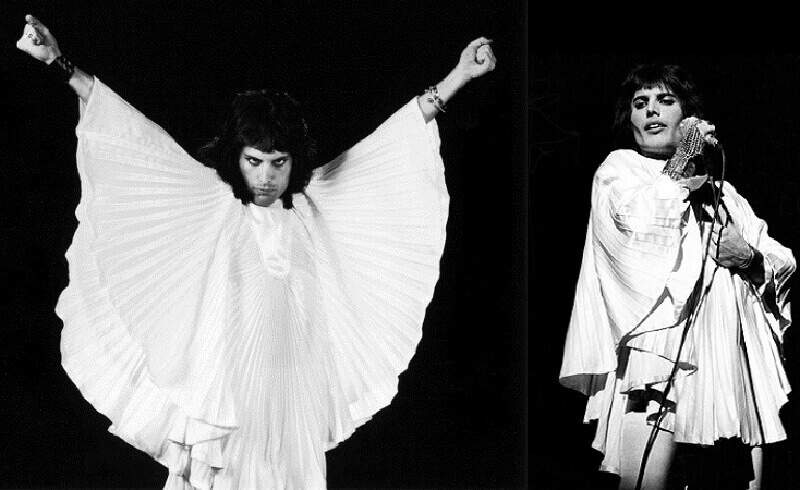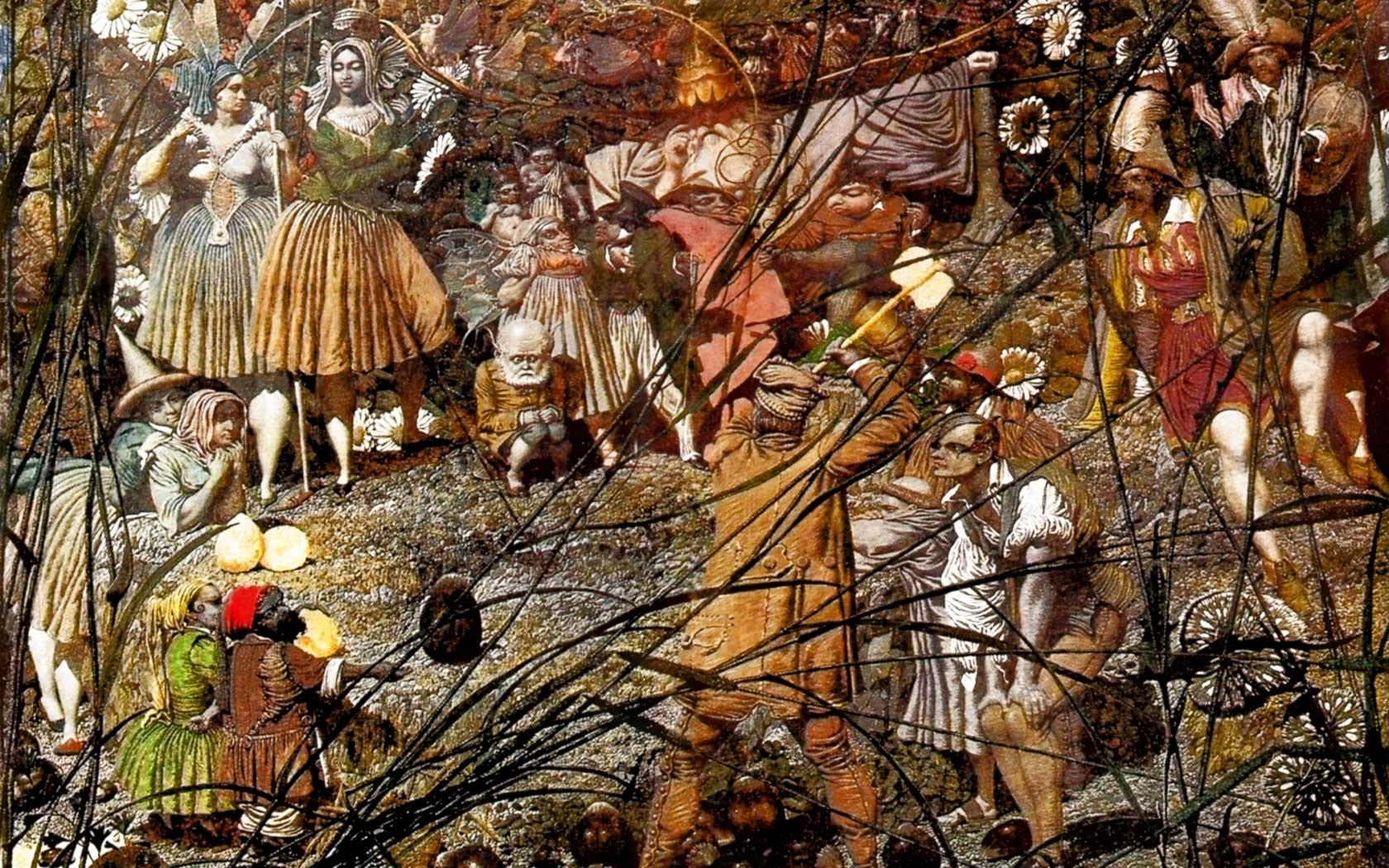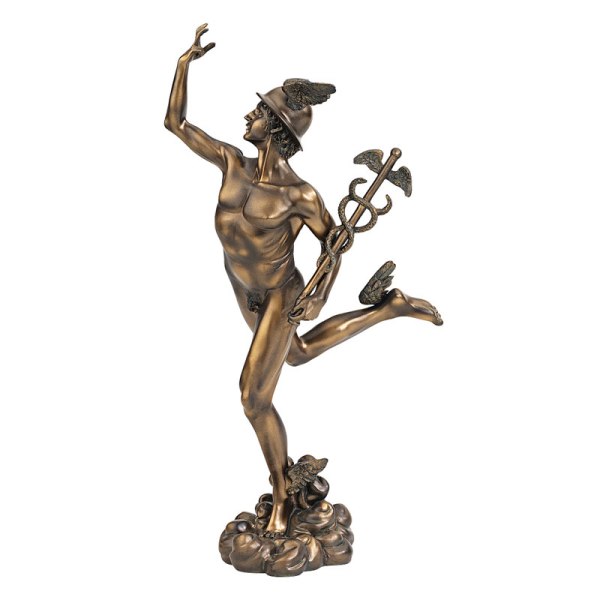Originally published as Blackstar Mercury & Crimson Moon (Part 2 of 3*)
Oh Mother Mercury, Look what they’ve done to me, I cannot run I cannot hide…
It was February 1974
Late one Thursday afternoon I was doing my homework while listening to the BBC’s Radio 1. The presenter recommended I spend the evening watching Top Of The Pops as it would be having a royal feel to it and would be hosted by the American DJ Emperor Rosko and would feature a new English band called Queen. I cannot remember if the group actually spoke on the radio, but I was suitable impressed by the introduction to make a point of watching them perform their intriguingly named track; Seven Seas of Rhye.
Some two hours later, the TV picture went green, smoky and black, Brian May’s guitar and the Mercury piano boomed in like a stallion stampede and Freddie’s dark painted eyes, black (self-trimmed?) fringe and sallow cheeks glared as if he were Hecate, the lead witch from Macbeth.

By early 1974 it felt like the world had been in a two year eternity of multi-coloured clothes, spectrum hair hues and platform boots. Queen broke into view but also remained hidden in the midnight sky. They were dressed in black and white that was so stark it drew an intake of breath. Not only did Queen look sharp, but their sound was too. Even in this, their first broadly cast song the polar contrasts between a thumping rock background and the crystalline voices and sheer searing guitar stood out. Everything about Queen was shiny, clean and fresh. It appealed greatly and was enhanced by the fact that Mercury’s impact was rather scary too.
I became transfixed by Freddie in a different way from how I had done with Bolan and Bowie and a major attraction was that Queen did not become universally or immediately popular. It’s hard to grasp this idea in 2021 after so many years of Queen’s music being used in TV adverts (currently it’s Tesco’s Christmas offering based around Don’t Stop Me Now), but in the mid 70’s they were portrayed as aloof, rude and pretentious. The Black/White thing clearly marked them as different from other acts and coupled with their look, the music press couldn’t pigeonhole them so they opted to hate them. Queen were elusive and this alienated them from the press which delighted me. I was getting into a band ahead of the curve and I ‘got’ what others didn’t.
Some three years later at a Queen concert Freddie told me (and the rest of the intruders butting into my private meeting with Queen at Wembley Arena) ‘you may have read about us splitting up, but I can tell you that the music press is talking from here’ … as he pointed at his rear end.
This was in the pre-Punk era yet to my mind, Freddie was a true maverick. He had mystery and talent and an exotic ‘otherness’ which made me, as a half Italian in England begin to feel that I too could also bring some cultural capital to the table. I loved the way he’d tell critics to hang themselves and then rammed home the point by prancing around like My Little Pony in shiny black spray-on slacks. His irony and masks were beautiful and nobody could tell who or what he was. In many ways, Freddie was the Invisible Man.
My other heroes, including artists from other fields, taught me that individuality is an asset and that it’s good to stand out from the crowd, but it was Mercury who showed that if you follow your instincts you can also develop a thick skin. Queen’s rise to fame was the first I could witness and contribute to. As a nailed-on Queen fan, I was actually pleased to be a recipient of bile from detractors and critics who criticised the band. Weirdly, this inspired me. I loved their music, their infamy and realised that being connected to something that divides opinion helped me to increase my self-esteem.
As for Freddie and the band, their journey has been well documented. I guess the higher you raise your head above the parapet, the more of your torso can be aimed at but even though they had experienced real ups and downs, by the early 1980’s they had already built a legacy. Full torso or top of the scalp, it didn’t matter where the missiles landed; their point was proven.
Another tremendous lesson that Freddie taught us was that if you want to prove yourself as a creative person, attention to detail and minutiae are key. In an interview (you can find it on YouTube) Freddie joked about the hours it took to produce the backing vocals for Somebody To Love. He described how Roger and Brian group would get bored from constantly repeating short vocal bursts that were being knitted into a highly complex arrangement so he’d give them biscuits to distract them.
Attention to detail sets successful people apart from the rest. Even if the resulting song seems simple and refined, it is likely that much detail and deep testing was used on the way. One of the reasons why Queen’s music is so enduring is that they invested so much time on small things that even now if you listen to a track like The Fairy Feller’s Master-Stroke (Queen II, 1974) there are tiny chimes and bells that seem new even after 47 years.

It is now 30 years since Freddie died and it’s taken me this long to be able to obtain a perspective on somebody I never met and whose lifestyle and talents were so different to mine. Our connection was purely one way; Freddie created it and I bought it. But I also feel there is a more ethereal contact and this is where he was so good because so many people around the world feel the same as me. They also connect to Fred because they feel different from their peers and know that the man whose professional career was invested in entertaining millions was also invested in hiding his real self.

